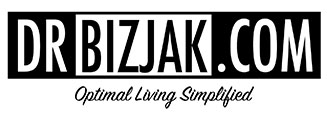If there is one line that this pandemic has beaten to death, it is “follow the science.” This has confused more people than it has helped, because no matter what it is you are discussing or debating, there is some science to support your position.
Let’s forget the pandemic for a moment, as the emotional attachment you have regarding things like masks, social distancing, sheltering in place, and mandates will surely skew your ability to look at the information I am about to present objectively.
How is it that we have so much information, research, and science, yet continue to get sicker and sicker? Does it seem strange to you that we know just about everything we can know about the foods we eat, i.e., number of calories in a serving, fat, carbohydrate, and protein content, and vitamin and mineral amounts, yet remain so confused on what diet we, as humans, are supposed to eat?
PubMed is a “free resource supporting the search and retrieval of biomedical and life sciences literature.” This online resource allows anyone to access over 33 million studies, citations, and abstracts of published scientific literature. With so much research having been done, having accumulated so much scientific data, and with such ease of access to this data, doesn’t it seem like we should be much healthier, happier, and well-adjusted?
In 1972, President Nixon declared “war on cancer.” Here we are, 49 years later, not only without the promised cure, but with cancer rates on the rise. Despite having spent well over $100 billion (that’s billion, with a B!) on research and spending $100 billion each year on treatment, cancer will soon surpass heart disease as our number one killer. Go to PubMed.gov, type in cancer, and you’ll find just under 4.5 million results. All those studies, all that research, and all that knowledge, yet we continue to get sicker and sicker.
We are too analytical for our own good. We’ve put too much emphasis and faith in science. Doctors often site studies highlighting the miraculousness of a drug, emphasizing its safety, and promote it with such certainty. One big problem is that these studies are done by the companies that are set to profit from their sale, which affects everything from the designs of the study, the collection of the results, and how the final data is summarized, and ultimately presented to the doctors and public. The studies can be faulty, the data skewed, the benefits overstated, and the risks understated.
The following two quotes, both from editors of the most prestigious medical journals, should rock you like they rocked me…
“It is simply no longer possible to believe much of the clinical research that is published, or to rely on the judgment of trusted physicians or authoritative medical guidelines. I take no pleasure in this conclusion, which I reached slowly and reluctantly over my two decades as editor of The New England Journal of Medicine.” -Marshia Angell (2009)
“The case against science is straightforward: much of the scientific literature, perhaps half, may simply be untrue. Afflicted by studies with small sample sizes, tiny effects, invalid exploratory analyses, and flagrant conflicts of interest, together with an obsession for pursuing fashionable trends of dubious importance, science has taken a turn towards darkness.” -Richard Horton, editor of The Lancet (2015)
Scientific breakthroughs have been responsible for so much good in this world. We need science. We need research. I would be foolish to condemn it. But we need to realize that the answers to our biggest problems will not be solved through more research and more studies (especially bogus studies done by corrupt companies that falsify data to sell more product).
The healthiest humans on the planet are remote, indigenous tribes that know absolutely nothing about science. They don’t have a Cleveland Clinic, they don’t have EKG machines, and they don’t even know what fat, carbohydrates, or cholesterol are. Yet they have no obesity, no diabetes, no depression, very little cancers, and hearts that are much healthier than ours. So, as you are told to “follow the science,” be careful what science you follow and how much faith you put into this so-called science.







